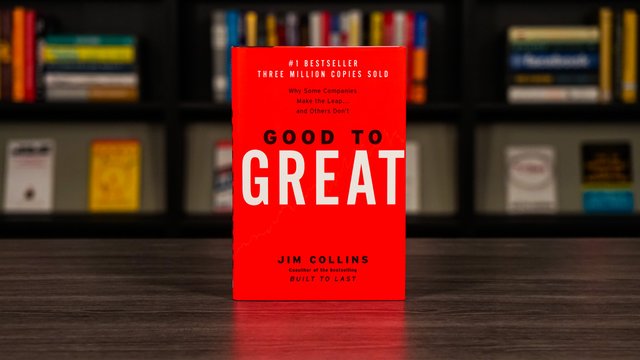five must read books for entrepreneurs
1: Zero to One
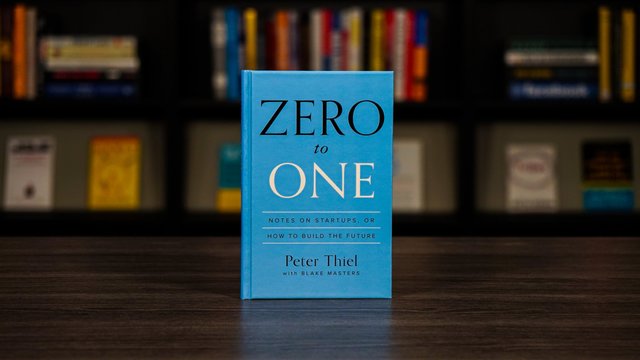
Zero to one by Peter thiel:
This book mainly focuses on building a new business or to improve the pre-existing business.
Peter Thiel, co-founder of Paypal makes an attempt to bring out that the monopolistic firm performs better than the perfectly competitive firms.
Example: Google a monopolistic and Airline US company a perfectly competitive firm.
Furthermore, if there is over the competition then the people will copy from what has been done from the past.
The first few pages are very interesting that he explains what 0 to 1 means. Precisely, when we go creating something new we will move forward in vertical line whereas almost everyone moves from 1 to n and it means we move in horizontal line when we add some modifications to an existing one.
This book mainly focuses on monopolistic firms.
Peter Thiel says that there should not be the same kind of products also it is easy for anyone to make homogeneous products. People will also not buy the same kind of products every time, they will expect something new and their demand will increase for the things which are indeed new so if we invent something new then eventually there will be an increase in demand.
Perfectcompetitive firms should have an equilibrium that is the supply should be equal to demand but many firms fail to deliver he justifies this by an example that if we start a restaurant at mountain view in California like a middle-class man one who starts a business over there will give an investment in lower rate, he employs a grandma for register and he employs some kids for washing the dishes and aims a profit. Unfortunately, he will fail to earn a profit. As a result, he has to close the firm so this is how Peter Thiel explains the perfect competitive firms.
In addition, he explains how the cashflow works. Cash flow is significant in the work that he compares by giving an example of Twitter and the New York Times.
Overall this book has covered various lessons from tech entrepreneurs and integrated it with economics.
2: Measure What Matters
OKRs: The Simple Idea that Drives 10x Growth
Book by John Doerr
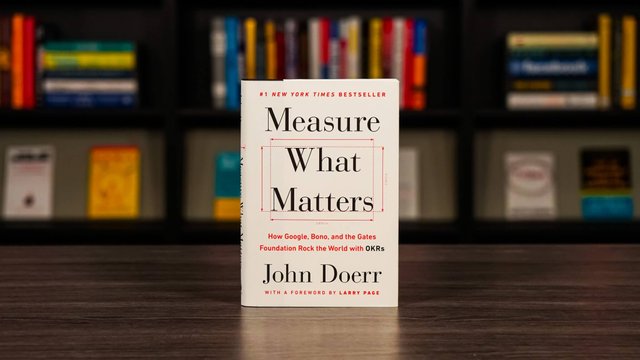
The revolutionary movement behind the explosive growth of Intel, Google, Amazon and Uber.
With a foreword by Larry Page, and contributions from Bono and Bill Gates.
Measure What Matters is about using Objectives and Key Results (OKRs), a revolutionary approach to goal-setting, to make tough choices in business.
In 1999, legendary venture capitalist John Doerr invested nearly $12 million in a startup that had amazing technology, entrepreneurial energy and sky-high ambitions, but no real business plan. Doerr introduced the founders to OKRs and with them at the foundation of their management, the startup grew from forty employees to more than 70,000 with a market cap exceeding $600 billion. The startup was Google.
Since then Doerr has introduced OKRs to more than fifty companies, helping tech giants and charities exceed all expectations. In the OKR model objectives define what we seek to achieve and key results are how those top priority goals will be attained. OKRs focus effort, foster coordination and enhance workplace satisfaction. They surface an organization's most important work as everyone's goals from entry-level to CEO are transparent to the entire institution.
In Measure What Matters, Doerr shares a broad range of first-person, behind-the-scenes case studies, with narrators including Bono and Bill Gates, to demonstrate the focus, agility, and explosive growth that OKRs have spurred at so many great organizations.
This book will show you how to collect timely, relevant data to track progress - to measure what matters. It will help any organization or team aim high, move fast, and excel.
3: Good to Great: Why Some Companies Make the Leap...and ...
To find the keys to greatness, Collins's 21-person research team read and coded 6,000 articles, generated more than 2,000 pages of interview transcripts and created 384 megabytes of computer data in a five-year project. The findings will surprise many readers and, quite frankly, upset others.
The Challenge
Built to Last, the defining management study of the nineties, showed how great companies triumph over time and how long-term sustained performance can be engineered into the DNA of an enterprise from the very beginning.
But what about the company that is not born with great DNA? How can good companies, mediocre companies, even bad companies achieve enduring greatness?
The Study
For years, this question preyed on the mind of Jim Collins. Are there companies that defy gravity and convert long-term mediocrity or worse into long-term superiority? And if so, what are the universal distinguishing characteristics that cause a company to go from good to great?
The Standards
Using tough benchmarks, Collins and his research team identified a set of elite companies that made the leap to great results and sustained those results for at least fifteen years. How great? After the leap, the good-to-great companies generated cumulative stock returns that beat the general stock market by an average of seven times in fifteen years, better than twice the results delivered by a composite index of the world's greatest companies, including Coca-Cola, Intel, General Electric, and Merck.
The Comparisons
The research team contrasted the good-to-great companies with a carefully selected set of comparison companies that failed to make the leap from good to great. What was different? Why did one set of companies become truly great performers while the other set remained only good?
The Findings
The findings of the Good to Great study will surprise many readers and shed light on virtually every area of management strategy and practice. The findings include:
Level 5 Leaders: The research team was shocked to discover the type of leadership required to achieve greatness.
The Hedgehog Concept (Simplicity within the Three Circles): To go from good to great requires transcending the curse of competence.
A Culture of Discipline: When you combine a culture of discipline with an ethic of entrepreneurship, you get the magical alchemy of great results. Technology Accelerators: Good-to-great companies think differently about the role of technology.
The Flywheel and the Doom Loop: Those who launch radical change programs and wrenching restructurings will almost certainly fail to make the leap.
4: Never Split the Difference: Negotiating As If Your Life Depended On It
Book by Christopher Voss and Tahl Raz
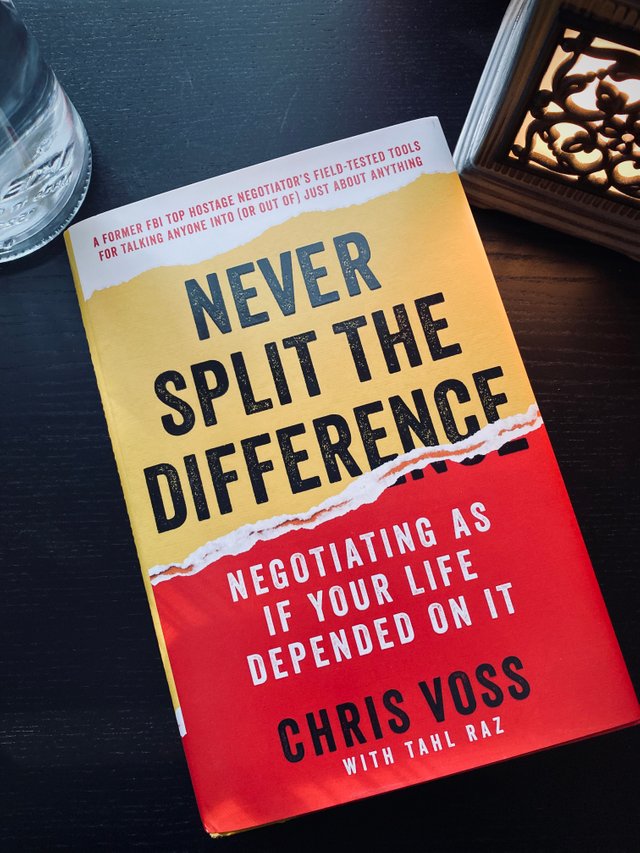
A former international hostage negotiator for the FBI offers a new, field-tested approach to high-stakes negotiations—whether in the boardroom or at home.
After a stint policing the rough streets of Kansas City, Missouri, Chris Voss joined the FBI, where his career as a hostage negotiator brought him face-to-face with a range of criminals, including bank robbers and terrorists. Reaching the pinnacle of his profession, he became the FBI’s lead international kidnapping negotiator. Never Split the Difference takes you inside the world of high-stakes negotiations and into Voss’s head, revealing the skills that helped him and his colleagues to succeed where it mattered most: saving lives. In this practical guide, he shares the nine effective principles—counter-intuitive tactics and strategies—you too can use to become more persuasive in both your professional and personal life.
Life is a series of negotiations you should be prepared for: buying a car; negotiating a salary; buying a home; renegotiating rent; deliberating with your partner. Taking emotional intelligence and intuition to the next level, Never Split the Difference gives you the competitive edge in any discussion.
5: How Toyota Became #1: Leadership Lessons from the World's Greatest Car Company
by David Magee
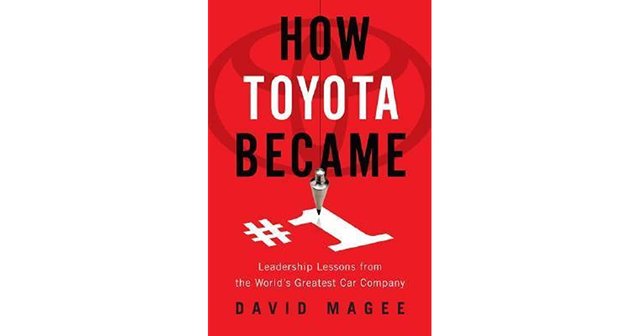
What we can all learn from the strategies that have made Toyota the world’s best car company
Everyone who follows the auto industry knows that Toyota has had an amazing twenty-five-year run, rising from humble Japanese start-up to thriving global giant. But the big puzzle is how Toyota did it while so many other car companies have struggled or failed.
Journalist David Magee dug deeply into Toyota’s past and present, interviewing senior executives who rarely talk to the press, along with many other sources. And he found that the company’s famous mastery of lean production is only part of the story. Magee explains the surprising power of Toyota’s corporate culture, which includes:
• Focusing on the long term: While most companies worry about the next quarter, Toyota is thinking about the next quarter century
• Jumping beyond the current trend: When Ford was still ramping up its gas-guzzling SUVs, Toyota was very quietly taking a huge lead on hybrids
• Making quality everyone’s responsibility: Toyota expects people at every level to think and act like quality-control inspectors
• Managing individual strengths: Toyota is revolutionizing the way people are managed, to maximize their strengths instead of criticizing their weaknesses
The lessons that Magee explains here will be valuable for managers in all disciplines and industries.
